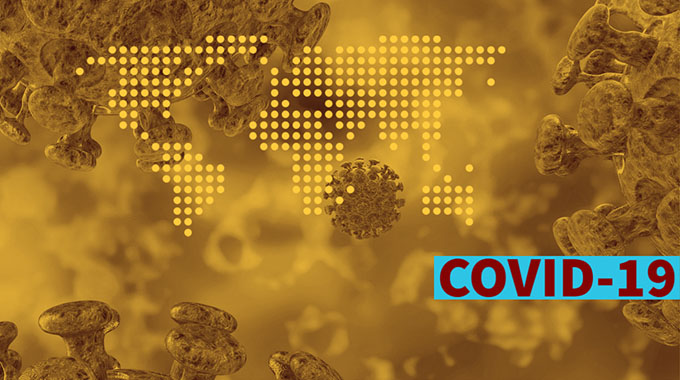Covid-19: How the world lost it

Roselyne Sachiti Features, Health & Society Editor
Last year, scientists gave a stern warning that the world was at risk of deadly pandemics, challenging authorities to take bold steps to manage the mounting threat.
This was the stark warning of a report, “A World at Risk” released on September 18, 2019 by an international group of experts just a few months before the first Covid-19 cases were reported in Wuhan, China.
A World at Risk is an annual report on global preparedness for health emergencies, and was released by an independent monitoring and advocacy body, The Global Preparedness Monitoring Board (GPMB).
Despite the increasingly dire risk of widespread epidemics, the world remains unprepared, the report warned.
Today, reality is now sinking given the Covid-19 pandemic which has spread to 146 countries and territories on six continents, infecting more than 1,2 million people and killing more than 80 000.
In Africa, by April 6, there were a total of 9 867 Covid-19 cases, 947 recoveries and 482 deaths.
In Zimbabwe, 10 people tested positive, while one person has succumbed to the virus. Covid-19 has exposed how the world was caught napping.
This also shows how the world could also have turned a blind eye to earlier warnings, ignoring the fact that health is a development issue that can stall even the biggest economies, and also result in high mortality among others.
The panic around the world to contain Covid-19 shows the huge challenges ahead of nations. In their report, GPMB last year warned that epidemic-prone diseases like Ebola, influenza and SARS are increasingly difficult to manage in the face of prolonged conflict, fragile states, and forced migration.
Because of Covid-19, economies have been shattered as countries lockdown. Past experiences show the depth at which pandemics can affect economies.
According to the report, estimated costs of past events include: a loss of over US$40 billion in productivity from the 2003 SARS epidemic; US$53 billion loss from the economic and social impact of the 2014-2016 West Africa Ebola outbreak and the US$45 to US$55 billion cost of the 2009 H1N1 influenza pandemic.
“The World Bank estimates that a global influenza pandemic akin to the scale and virulence of the one in 1918 would cost the modern economy US$3 trillion, or up to 4,8 percent of gross domestic product (GDP), the cost would be 2,2 percent of GDP for even a moderately virulent influenza pandemic,” reads the report.
The report further stated how climate change, urbanisation and a lack of adequate water and sanitation are all breeding grounds for fast-spreading, catastrophic outbreaks.
“For too long, world leaders’ approaches to health emergencies have been characterised by a cycle of panic and neglect,” said Dr Gro Harlem Brundtland, co-chair of the GPMB at the release of the report last year.
Given what is happening now globally with Covid-19, the 2019 report rightly emphasised that although governments and international institutions have taken steps to increase preparedness for outbreaks since the deadly Ebola crisis in West Africa five years ago, preparedness efforts are grossly insufficient.
“The trust between communities and the institutions that serve them is at the core of an emergency response, but it is almost impossible to build trust in the middle of a crisis,” GPMB co-chair Mr Elhadj As Sy also said last year, who is also the Secretary General of the International Federation of Red Cross and Red Crescent Societies.
The 2019 report pointed out how an outbreak equivalent to the 1918 influenza pandemic could kill an estimated 50 to 80 million people, spreading around the world in less than 36 hours and wiping out nearly five percent of the global economy.
In the case of a pandemic, many national health systems would collapse, with low-resourced communities hit the hardest, according to the report.
“Ebola, cholera, measles — the most severe disease outbreaks usually occur in the places with the weakest health systems. We have to ‘fix the roof before the rain’,” WHO Director-General Dr Tedros Adhanom Ghebreyesus also said at the September report launch.
As noted in the report, there has been some recent progress on scaling up in-country preparedness. As of July 2019, 59 countries developed a National Action Plan for Health Security, yet, none have been fully financed.
The report further suggested that in order to be fully prepared, all countries must create a fully costed and financed action plan, with international funders stepping in to close gaps for the poorest and most vulnerable countries.
In the report, the GPMB urged leaders to follow through on seven urgent actions (detailed below) to ensure the world is better prepared for the next health emergency.
Heads of Governments were urged to commit to preparedness by fully implementing the International Health Regulations, and increasing investment in preparedness as an integral part of national and international security.
G7, G20, G77 Member Countries and regional intergovernmental organisations were advised to follow through on their funding and political commitments for preparedness and regularly monitor progress at annual meetings.
Additionally, all countries were encouraged to build strong preparedness systems, with heads of government appointing a high-level coordinator to lead efforts across all government departments and sectors, to prioritise community involvement and to routinely conduct multisectoral simulation exercises.
Countries, donors and multilateral institutions were also urged to prepare for worst-case scenario of a fast-moving pandemic due to a virulent respiratory pathogen by scaling-up research and development for new vaccines and medicines, surge manufacturing capacity and rapid information sharing systems.
The IMF, World Bank Group, and international financing organisations were encouraged to integrate preparedness into their replenishments, national and international financial risk assessments, incentive systems and funding mechanisms.
But given the way COVID-19, like a veld fire spread from China to the global village since December 2019, many questions arise on whether world leaders and global funders listened or even took note of this warning.
What could have happened had they taken into account the seven steps suggested by the group of scientists last year? Could COVID-19 have ravaged communities and put the world to a standstill as it has done? What could the picture be like right now had the world listened?
What lessons have we learnt from the COVID-19 pandemic and how well will governments strengthen health systems?
All these questions are a clear indication that globally, there is a need for stronger health systems, response and finance mechanisms and political commitment. Indeed, investing in preparedness before a crisis strikes saves lives, jobs and money.
[email protected], [email protected].









Comments